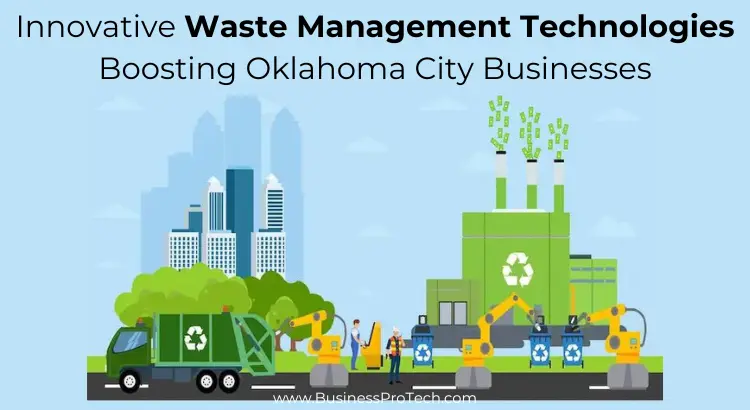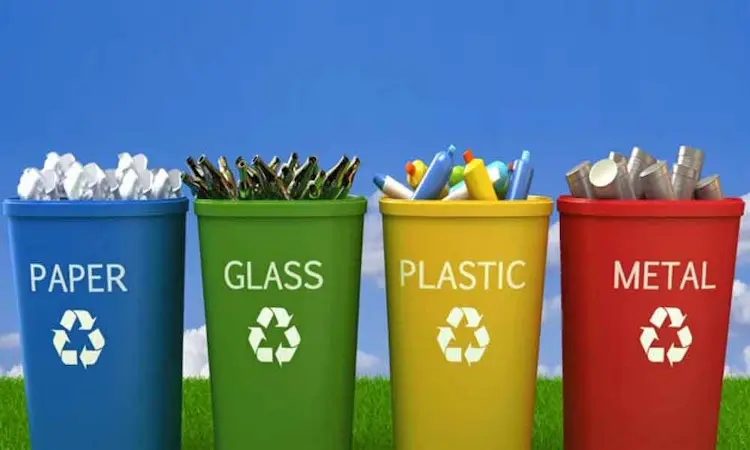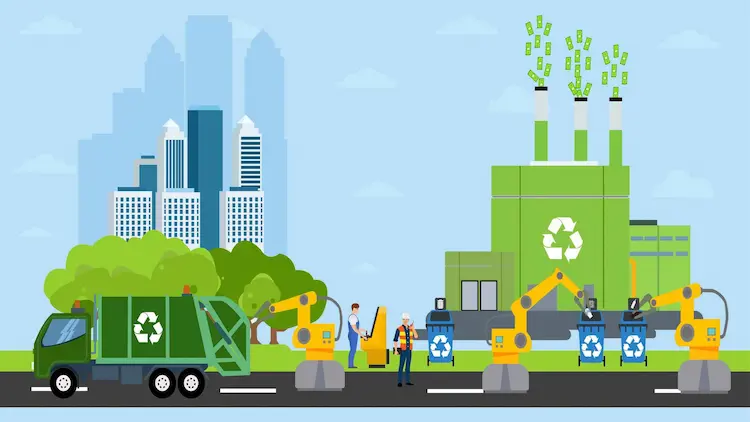In recent years, Oklahoma City has emerged as a frontrunner in adopting innovative waste management technologies that promise to enhance environmental sustainability and bolster local businesses.
The city’s strategic shift towards eco-conscious waste disposal and recycling processes underscores a broader commitment to environmental responsibility and economic growth.
For entrepreneurs and business owners looking to integrate sustainable practices into their operations, Oklahoma City offers compelling models and technologies that could redefine the waste management landscape, learn about Oklahoma city’s eco-conscious waste management.

Transformative Waste Management Solutions
The rapid increase in urban population will be the new challenge of providing space for waste management. The old subject of landfills and recycling, which does not include other waste methods, has appeared to be impotent in the face of rising waste volumes and environmental problems.
In reaction, Oklahoma City has invested in a series of clever technologies that seem to be among the most essential mixes of business economics to work with besides reducing the ecological imprint.
Advanced Recycling Techniques

The concept of revolution, however, brought advanced recycling technologies to the front line of Oklahoma City waste management. While traditional recycling methodology has difficulties, such as contamination and restricted types of materials it uses, the innovative strategies used in OKC employ advanced sorting and processing equipment to handle many kinds of recyclable material.
For instance, optical sorting technology uses highly-resolution cameras and machining learning algorithms to precisely identify and segregate recyclable materials from waste streams. This technology develops the purity and the value of recycled materials, thus recycling at a tangible profit for businesses in these sectors.
Furthermore, the city has registered chemical recycling processes into the class of chemical recycling processes meant to break down plastics into their fundamental chemical components. Meanwhile, these components can be restructured to manufacture new plastic products, so the process becomes a system of closed-loop, which helps to cut down waste and deplete resources. This multiplier effect not only gives rise to local plastic recycling companies but also attracts manufacturers for their sustainable raw materials.
Energy Recovery Systems
However, another breakthrough strategy is worth mentioning, namely the utilization of waste-to-energy systems. Such technologies transform naturally out-of-need waste into usable forms of energy, including electricity and heat, which are singled out in gasification and pyrolysis. By doing so, they provide a dual benefit: decreasing the amount of waste products and providing electricity for green energy. Local businesses launch the environmental movement with lower waste disposal costs and viable green energy that will work for them.
From small-scale entrepreneurs to huge enterprises, the business sector has integrated WTE technologies to guard the environment and cut down on energy expenditures. They have not only been able to keep up with increasingly stringent regulatory requirements but have also improved their brand perception as these entities are regarded as sustainable.
These systems also help reduce the use of fossil fuels, which supports national and global efforts to fight climate change
Economic Prosperity via Implementation of Environmental-Friendly Technology

Such creative and waste management techniques give small businesses economic opportunities for their business investment. Through a decrease in the usage of familiar waste methods and with the innovation of new technologies, companies can minimize their operational costs and attain the edge. Furthermore, the transition to green production and waste use also allows businesses to avail themselves of tax cuts and grants, thereby improving their financial status.
Also, sustainability-conscious consumers have a great impact on proactive businesses that practice a sustainable approach. Such businesses tend to have higher brand loyalty and customer satisfaction, which is also good for the environment. This consumer shift drives the firms to look into developing waste management technologies that the markets have never seen before.
The Relationship Between Waste Management and its Commercial Nexus
The relevant sector of waste management technologies is occupied with an abundance of opportunities to be realized by existing businesses and green entrepreneurs alike. Corporations that invent or purchase new recycling-recovery methods and power plants can address the needs of an expanding pool of customers concerned about environmental issues and under environmental regulations.
For local businesses, participating in Oklahoma City’s cutting-edge waste management projects can be an important factor in attracting customers and distinguishing the business from its competitors. It communicates the ecolabel’s ethicality, which can improve brand prestige and consumer confidence.
Conclusion
Texas is showing evident capacities in the field of waste management technologies, which are becoming the criterion for the capital cities on the global scale. The city now solves both environmental concerns while accelerating a better business atmosphere by repurposing what was previously a waste problem into a remedy for sustainable energy production and material recovery.
With the look at Oklahoma City as a prototype by more cities, the scale of such advancements to help confront global waste management problems is easily realizable.